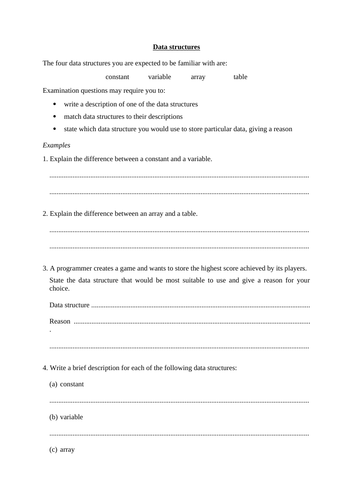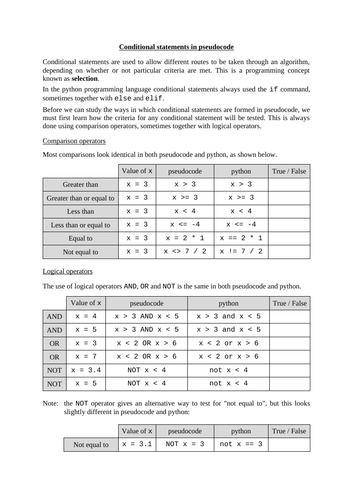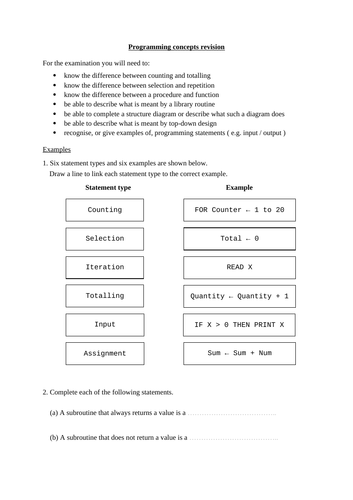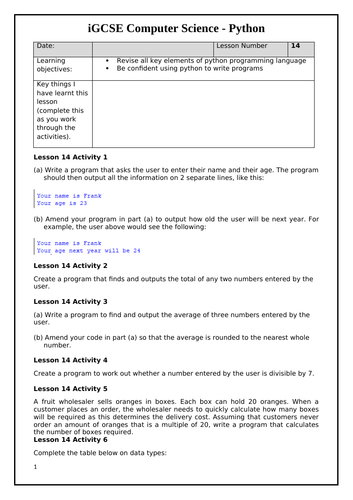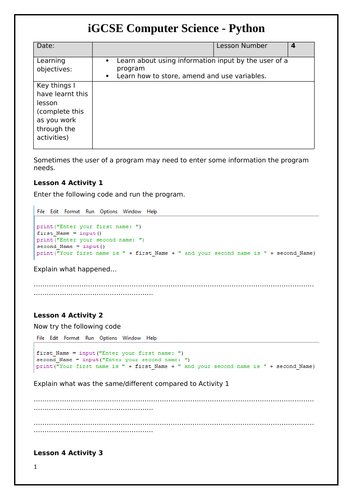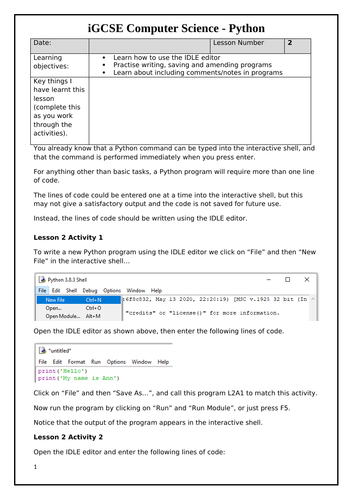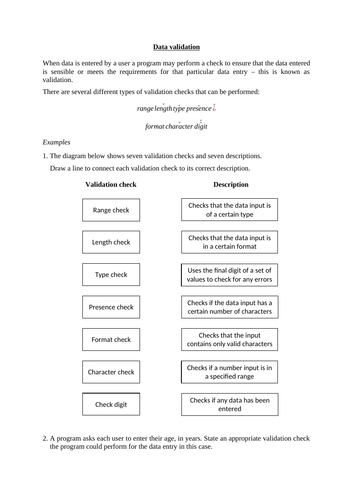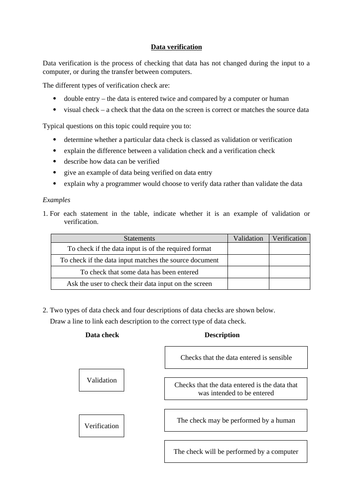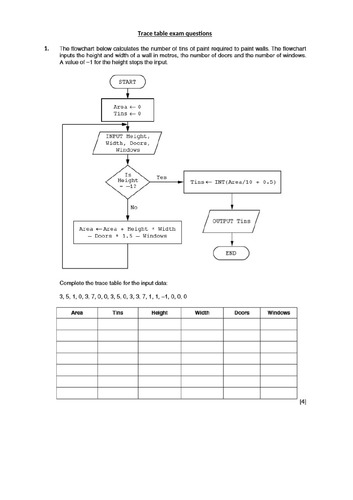31Uploads
13k+Views
8k+Downloads
All resources

Data structures (iGCSE Computer Science)
This resource focuses on the different data structures pupils are expected to be familiar with for the iGCSE Computer Science course.
It begins with some examples to work through as a group, followed by an exercise with 12 questions for pupils to complete themselves.
Answers to the exercise are included.

Selection in pseudocode (iGCSE Computer Science)
This 19 page resource is designed to introduce students to the use of selection (conditional statements) in pseudocode, as required for the new iGCSE Computer Science specification (from 2023).
The first section covers comparison operators and logical operators. Each command is introduced with some examples and, where appropriate, is compared with equivalent commands in Python. Exercise A has 20 questions for students to practise working with these commands.
The next section focuses on IF statements. The different possible structures of IF statements are introduced with some examples and, where appropriate, are compared with equivalent commands in Python. Exercise B has 19 questions for students to practise writing algorithms that include use of IF statements.
The next section focuses on CASE OF statements. The different possible structures of CASE OF statements are introduced with some examples and, where appropriate, are compared with equivalent commands in Python. Exercise C has 19 questions for students to practise writing algorithms that include use of CASE OF statements.
Full solutions to the exercises are included, and answers to any examples are included in the teacher’s version of the resource.

Programming concepts revision (iGCSE Computer Science)
This resource can be used to revise the topic of programming concepts. It briefly covers each of: counting, totalling, selection, repetition, procedures, functions, library routines, structure diagrams, and top-down design.
There are 7 example questions to work through, either as a class or for the pupils to attempt on their own.
Solutions are provided.

Python revision activities
This booklet of activities is designed to help your students revise the key Python programming skills they need for the iGCSE course.
It covers inputs and outputs, calculations, data types, comparison operators, IF statements, FOR loops, WHILE loops, and lists/arrays (1D and 2D).
There are over 30 activities for pupils to work through, including many programming tasks.
The booklet is designed for pupils to work through independently, so they can progress and learn at their own pace and you just support and guide as necessary.
This resource has been updated for the new specification for exams from 2023, so includes some activities working with 2D lists.
Solutions to all activities are included in a separate booklet.

Introduction to Python - printing
This short booklet can be used as an introduction to the Python programming language. After a short introduction activity, pupils practise typing commands into the interactive shell to learn how the print command works.
The booklet is designed for pupils to work through independently, so they can progress and learn at their own pace and you just support and guide as necessary.
Solutions to all activities are included in a separate booklet.

Using the input command in Python
This short worksheet introduces how the input command allows the user of a Python program to enter strings, and how to store the input.
The booklet is designed for pupils to work through independently, so they can progress and learn at their own pace and you just support and guide as necessary.
Solutions are included on a separate sheet.

Using variables in Python programs
This short booklet introduces how variables are defined and used within Python.
The booklet is designed for pupils to work through independently, so they can progress and learn at their own pace and you just support and guide as necessary.
Solutions are included in a separate booklet.

Writing and saving Python programs using the IDLE editor
This short booklet shows pupils how they use the IDLE editor to write and save programs. It also shows how comments can be added within programs.
The booklet is designed for pupils to work through independently, so they can progress and learn at their own pace and you just support and guide as necessary.
Solutions are included in a separate booklet.

Data validation (iGCSE Computer Science)
This short resource introduces the different types of validation checks a computer may perform.
There are some example questions to work through with your group, and answers are provided.

Data verification (iGCSE Computer Science)
This short resource introduces the different types of verification checks a computer or person may perform.
There are some example questions to work through with your group, and answers are provided.

Trace table exam questions (iGCSE Computer Science)
This resource is based on a selection of 17 questions on trace tables taken from past papers.
The first document contains the exam questions, which can be printed for your pupils.
The second document is a spreadsheet designed to help the students get the trace tables correct before they fill in the printed document - as they fill in each cell within a trace table, it will stay black if it is correct, but turn red if it is wrong. This means they will be aware of any error as soon as they make it, rather than working through the whole table and only realising at the end that they need to make corrections.
The third document is the answers (mark schemes) to the questions.

